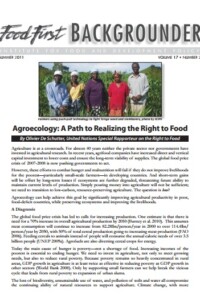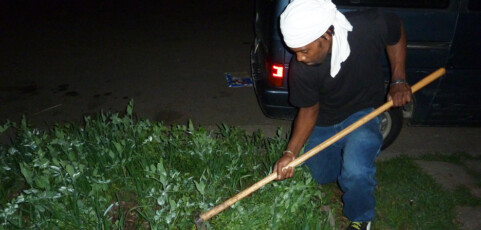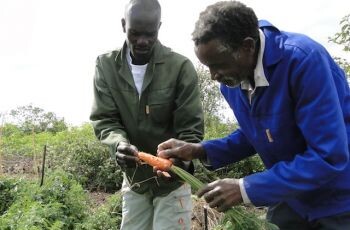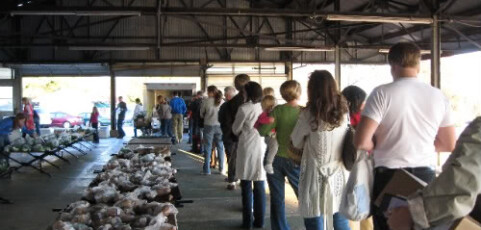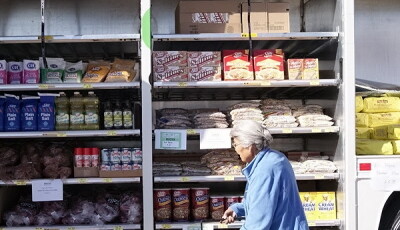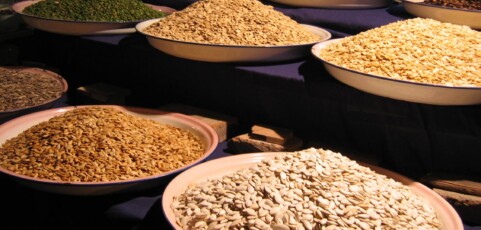Background paper by Olivier De Schutter, United Nations Special Rapporteur for the Right to Food.
What we need is 40 acres and a mule
The case of Brent, a urban famer. The urban agriculture movement, sweeping across urban areas, from West Oakland to Detroit, Milwaukee and Chicago to the Bronx and beyond, is a call to reclaim post-industrial abandoned lots, under-serviced public parks and vacant lots to grow fresh food for the people. The movement is often called “food justice” , representing the idea that healthy food for our people is a human right, not a privilege.
We will not wait for government
Concerning how African branch of La Via Campesina (LVC) pledges to build food sovereignty from below by promoting agroecology in the region of Southern, Eastern and Central Africa.
The color of food
The Color of Food aims to address the lack of voices from Asian, Black, Latino and Native American communities in the dialogue on healthy food and food justice.
Introducing LocallyGrown – an innovative online farmers market system
Eric Wagoner , the creator of LocallyGrown, said that the initiative “…is best described as an online farmers market system where customers buy their produce online and come to one spot to pick it all up.” Originally developed for a farmers market in Athens, GA in 2002, LocallyGrown has expanded to 310 communities across North America, most of which are rural.
“Bring the food to them”: A different kind of food truck
It’s a very simple concept designed to overcome the barriers of affordability and access to healthy foods. The MoGro vision is to eliminate food deserts in New Mexico so that all communities have access to healthy, affordable, and sustainably-sourced foods.
Seed Lending Libraries: Empowered Communities Take Control of their Genetic Resources
Seed libraries are places where members of the community can come and literally “check out” seeds just like one checks out a book, for free. Members can take, grow, save, and at the end of season, “return” seeds back to the library.

